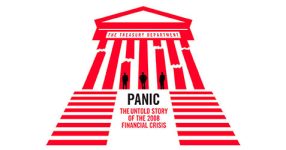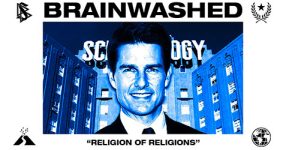In the realm of global religion and finance, The Church of Jesus Christ of Latter-day Saints, commonly known as the Mormon Church, commands attention. Boasting iconic temples, memorable commercials, and even a Broadway parody in “The Book of Mormon,” the church holds considerable influence with 17 million members worldwide, including a significant presence in Canada.
Mormon Wealth: A Global Financial Powerhouse
While not the largest faith, the Mormon Church stands among the wealthiest. “The Mormons’ Books” delves into the intricate relationship between the church and its finances, zooming in on Canada, where allegations of fiscal impropriety and tax avoidance have surfaced.
Financial Acumen or Business Tactics?
Presenting itself as a religious entity with a keen focus on financial management, the Mormon Church sparks debates about whether it operates more as a business than a faith. This raises fundamental questions about the necessity for substantial wealth within a religion founded on faith.
Tithing Troubles: Unveiling Financial Discrepancies
At the core of Mormon financial practices lies tithing – a mandatory ten percent contribution of members’ income. Allegations of more than $1 billion raised in Canada being redirected to the U.S. rather than local charitable causes have raised concerns. Particularly controversial is the significant transfer of Canadian tithing funds to Brigham Young University (BYU) in the United States, triggering doubts about the alignment of contributions with the church’s humanitarian principles.
Financial Transparency: A Call for Reckoning
Whistle-blowers like Nigel Kennett, Ryan McKnight, and Josh Biggley have exposed substantial financial holdings, including stocks and real estate, valued at billions of dollars. The church’s portrayal of itself as primarily religious with secondary business interests faces challenges, as critics demand more transparent financial disclosures, especially for organizations funded by tax-free donations.
The accumulation of vast wealth through tax-free donations invites ethical scrutiny. Critics argue for more openness in financial dealings, asserting that organizations relying on tax-free donations should disclose their finances more openly. Discrepancies in charitable donations across countries, limited acceptance of LGBTQ+ individuals, and allegations of tax avoidance further intensify these controversies. Former members, like Sue and Trevor, who left the church, demand refunds of their tithing money, viewing it as extorted rather than willingly given.
In conclusion, “The Mormons’ Books” directed by Timothy Sawa peels back the layers of the Mormon Church’s financial practices, with a spotlight on Canada. The increasing scrutiny over its financial dealings prompts calls for transparency and ethical behavior, challenging the church to align its actions with its stated values and determine its future direction.












